Education Bureau to check with schools on class boycotts but will allow institutions to decide how to deal with planned mass action by Hong Kong students
- Minister Kevin Yeung says authorities will gather information only to get a picture of how boycotts progress but stresses government is opposed to them
- Many universities say they respect students’ freedom of speech but only two promise not to punish those who take part

Hong Kong’s education authorities will check with schools about the number of students and teachers who fail to show up when classes resume next month as guidelines are issued to schools on how to deal with a looming class boycott.
Education minister Kevin Yeung Yun-hung stressed on Tuesday that the authorities had the responsibility to grasp a general picture of how the boycott campaign was going in schools and would leave it to individual schools to decide if punishment was needed.
The so-called class boycott, co-launched by localist party Demosisto – founded by Occupy activist Joshua Wong Cho-fung – is part of a broader anti-government campaign triggered by the now-shelved extradition bill.
University students are also planning a class boycott, which they hope will force the government into fulfilling anti-government protesters’ demands, including a formal withdrawal of the extradition bill, and the appointment of an independent inquiry into police handling of the protests.
While university students are still finalising the format and duration of their strike, Demosisto called for a class boycott by secondary school students every Monday.
Yeung said on Tuesday that the government opposed any class boycott action and had issued guidelines to schools to spell out the government’s position and the relevant rules that might apply to deal with possible class boycotts.
“Class boycotts are not a solution … Whether a boycott lasts a long time or takes place once a week, it will disrupt students’ learning. It is not what we want to see,” said Yeung.
He declined to speculate on the impact of the class boycott but said he believed schools would be able to manage.
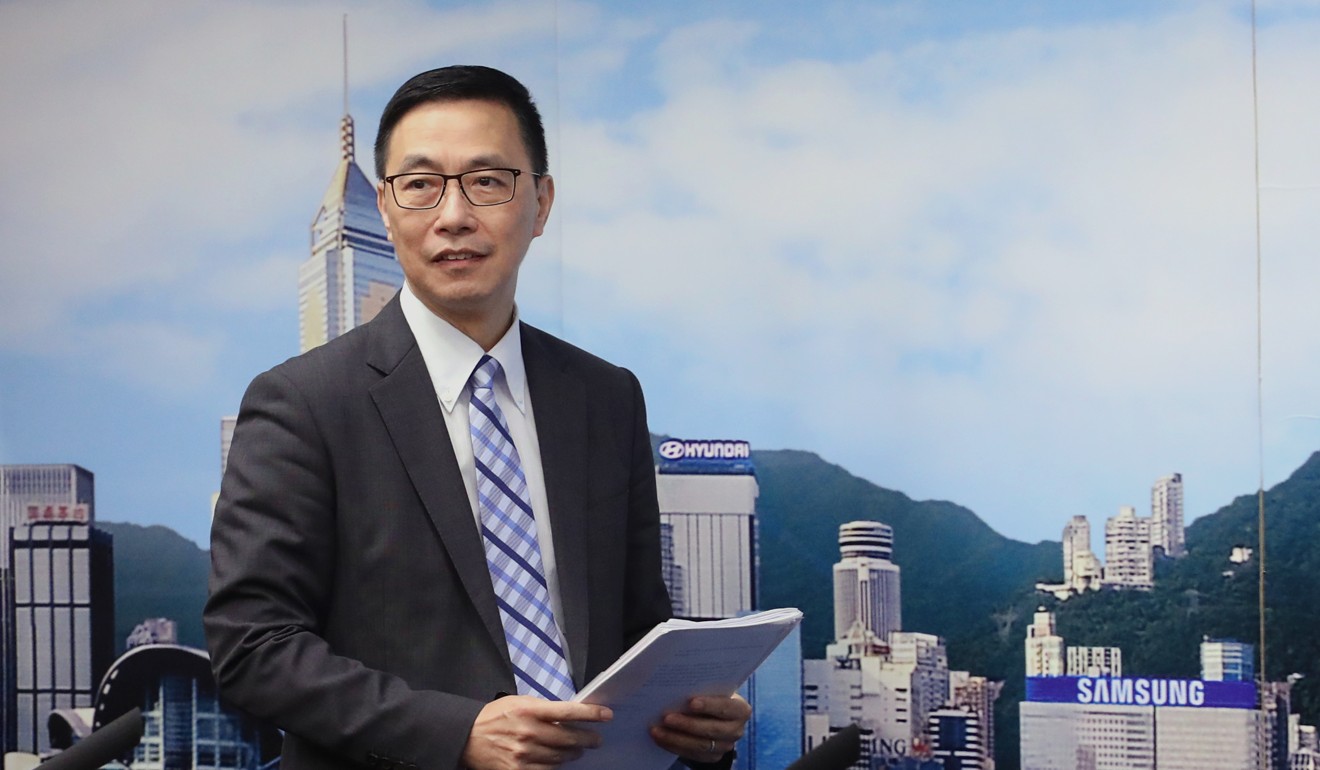
He said the authorities would call headmasters on the first days of the new school year to see if there were any anomalies, but stressed that the government would not collect individual names.
“Regarding punishment, we will leave it to the school management to decide it in a professional manner. But we believe schools would try to offer counselling first,” added Yeung.
He also said the authorities would adopt a zero-tolerance policy against bullying in class, amid concerns that children whose parents are police officers might be targeted by classmates. He said schools should be careful not to reveal any student’s family background.
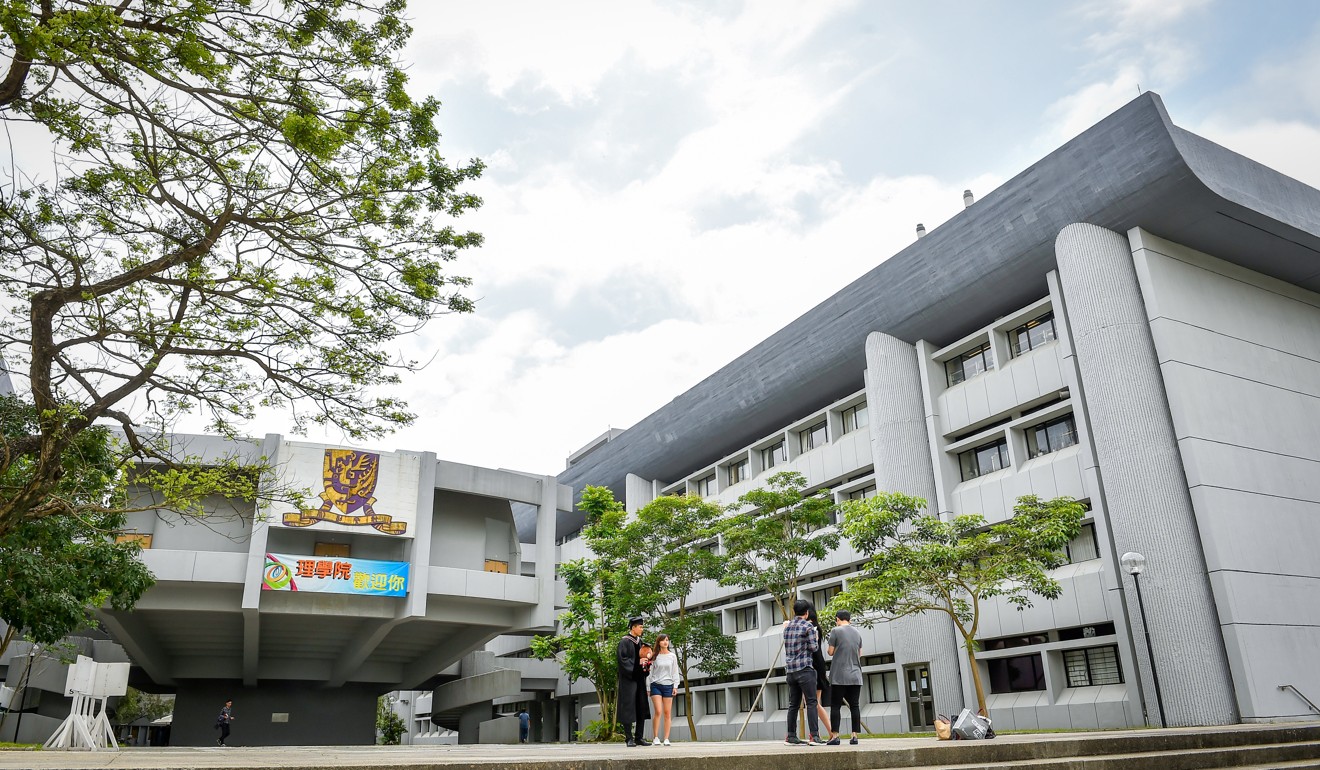
Teddy Tang Chun-keung, chairman of the Hong Kong Association of the Heads of Secondary Schools, said on Tuesday that he hoped activists would not bring politics onto school grounds.
“Schools will try to accommodate. It might be arranged for students who opt to skip classes to stay in another room,” said Tang, who added there was no immediate plan to impose punishments.
“For teachers, if they do not come to work, they can take no pay leave,” said Tang.
The Professional Teachers’ Union, the city’s biggest teachers group, said the union respected the students’ plan but there was no plan to mobilise teachers to strike.
Dr Esther Ho Yuk-fan, vice-chairwoman of the Hong Kong Association of Careers Masters and Guidance Masters, also said her association would draft guidelines to help teachers deal with class boycotts and offer counselling to students taking part.
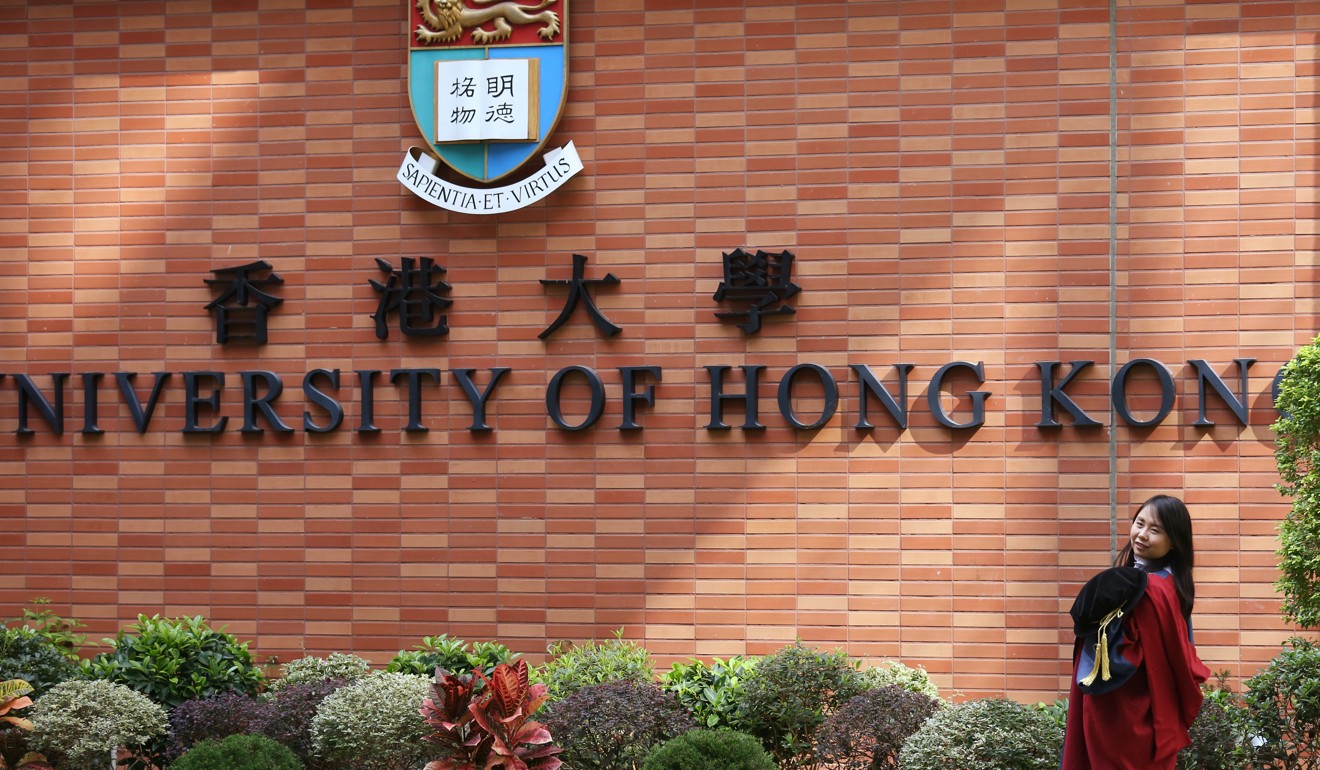
“We should not aim to discipline the [participating] students. But we should show we care about them and listen to their views,” said Dr Ho. “Of course, we should also let them know that school is an education unit and there are things they simply cannot do, like say, hanging a 50-foot-long banner from the school building.”
Many of the local tertiary institutions said they respected the students’ decision, but only Shue Yan University and City University stated clearly that they would not penalise students for boycotting classes.
The University of Hong Kong said it would keep an eye on the situation. Chinese University said it respected freedom of speech and academic freedom but urged students who take part in the boycott to also respect the decision of others who wish to attend classes.
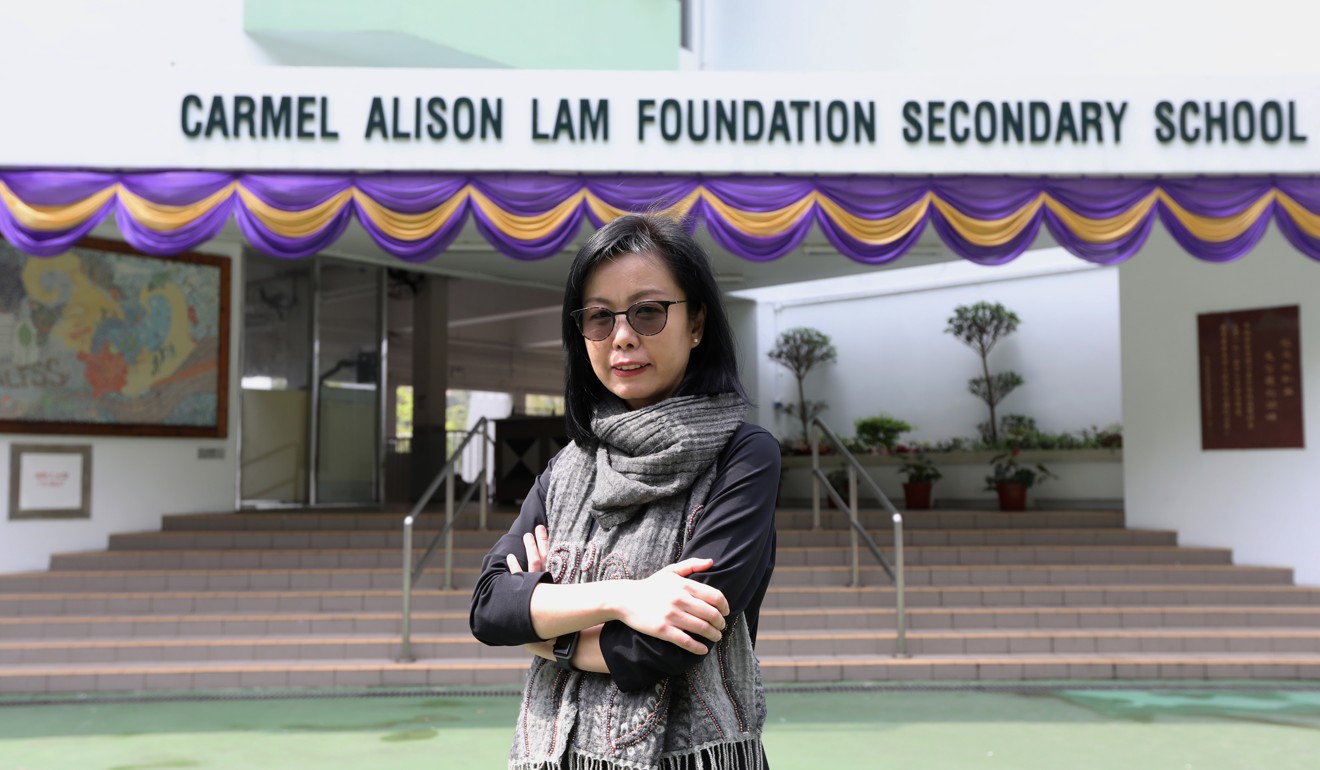
The Open University said it would “endeavour to ensure normal operation of our teaching and administration work so that student learning will not be affected”. City University said it would “not penalise students for the reason of class boycotts”, and lecturers could decide on the “arrangements for supplementary tests”. The Education University also said appropriate arrangements would be made and pledged that students’ learning would not be affected.
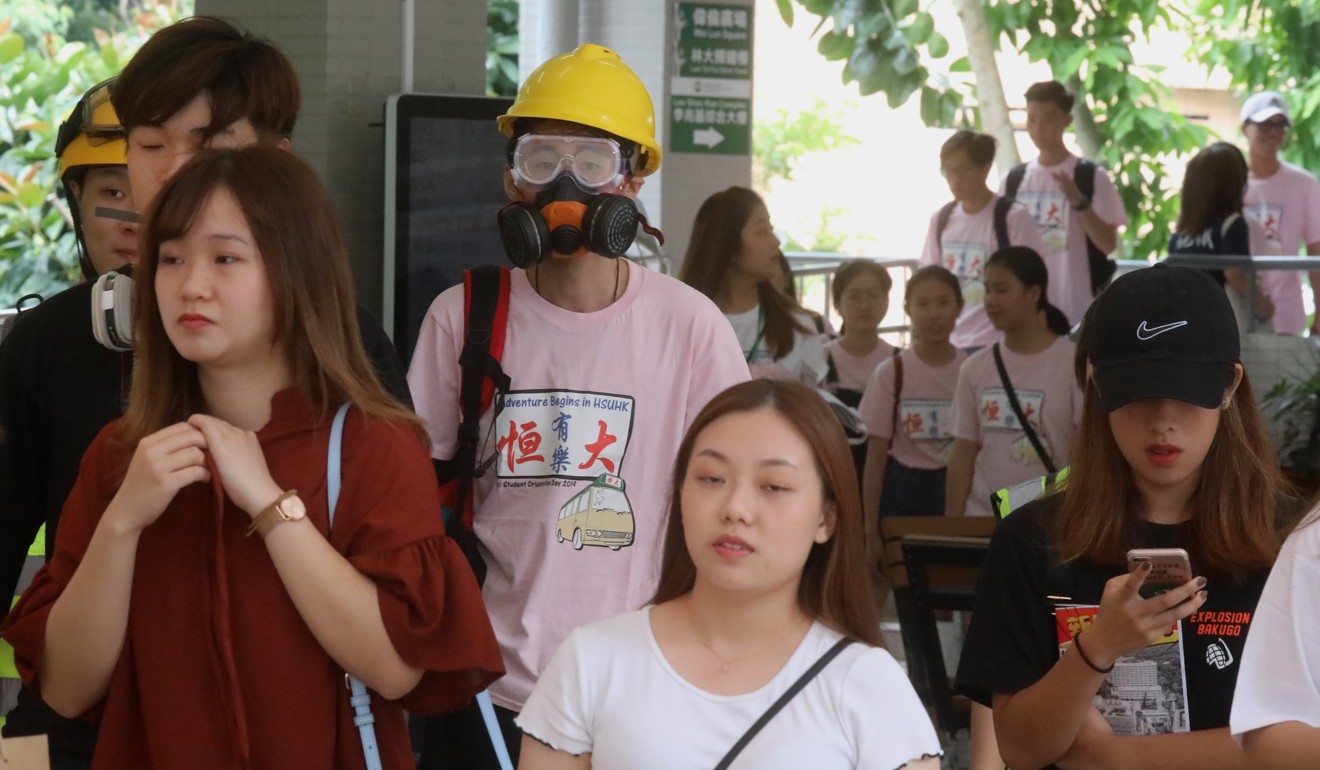
The Academy for Performing Arts also said it had established rules and regulations for dealing with the delivery of its academic programmes, student affairs and other related issues. “These will continue to be the guiding principles for the academy during these challenging times. We hope that all parties will be able to find a way to communicate in a rational manner and to engage in open dialogue,” it said in a statement.
Meanwhile, at Hang Seng University, a group of students wore black T-shirts, helmets and face masks during the institute’s orientation day in protest against what they call police brutality against demonstrators.
Freshman Wilson Tsang, studying communications, came in full riot gear.
“We are wearing full gear even at a safe event like this orientation day. This is to show how abusive the police have been,” Tsang said.
He added that the dress code had become iconic, with some young people in Japan even cosplaying Hong Kong protesters.